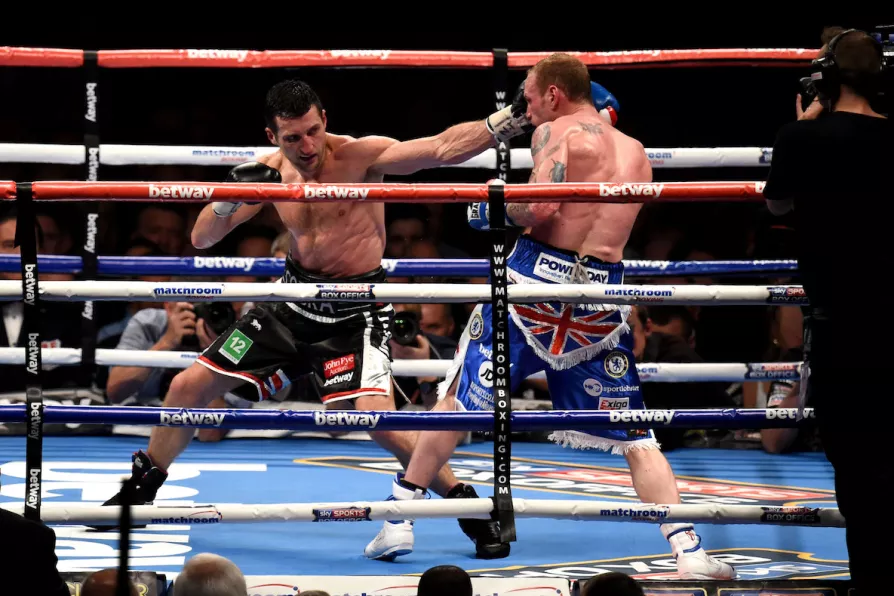
 Carl Froch (left) in action with George Groves during the IBF and WBA World Super Middleweight Title at Wembley Stadium, London.
Carl Froch (left) in action with George Groves during the IBF and WBA World Super Middleweight Title at Wembley Stadium, London.
IT WAS 10 years ago — on November 25 2013 to be precise — that George Groves put in a performance against Carl Froch at the Manchester Arena that will go down in history as one of the most sensational and audacious ever seen in a British boxing ring.
All the way during the build-up to the fight, Froch had talked like a man who was going to roll over his young challenger like a juggernaut. The veteran champion was not only rattled but offended, you could tell, by Groves’s extraordinary confidence and self-belief.
Groves told everyone prior to the fight that he was going to come out, take the centre of the ring and engage with the four-time world champion. No-one believed him. Most believed his only chance lay in staying on the back foot and using his movement to avoid Froch’s power, while countering.

JOHN WIGHT tells the riveting story of one of the most controversial fights in the history of boxing and how, ultimately, Ali and Liston were controlled by others

JOHN WIGHT previews the much-anticipated bout between Benn and Eubank Jnr where — unlike the fights between their fathers — spectacle has reigned over substance











